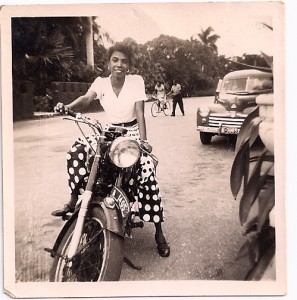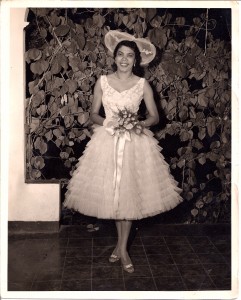
Fanshen Cox is an actor, producer, and educator based in Los Angeles. She’s a co-founder of the Mixed Roots Film & Literary Festival and can be heard every week co-hosting the award-winning podcast Mixed Chicks Chat.
In keeping with our recent family motif, we interviewed Fanshen about One Drop of Love, which premieres in L.A. on Saturday, March 9th and has other scheduled dates through June. Check out the One Drop of Love website for the latest news and show dates!
What’s One Drop of Love?
It’s a multimedia solo performance piece about my relationship with my father and the ways in which ‘race’ has both hindered and improved our relationship. Eventually I’ll combine the footage I use in the piece, as well as performance footage and new footage, to complete a feature documentary film of the same title.
What events influenced you to start this project?
In 2006 I got married to my husband, who is Italian. My father, a staunch Pan Africanist, didn’t attend my wedding – and I believed ‘race’ had a lot to do with his absence. This sent me on a journey to discover if and how ‘race’ came into play in our relationship. I wanted to share this journey with others, and I felt documentary film would be the perfect medium for that.
What major challenges, if any, have you encountered along the way?
What kind of budding independent filmmaker would I be if I didn’t say the biggest challenge is: FUNDING? I remember the shock I felt when I completed my first budget for the film – I had no clue how I would raise the money. Yet little by little I’ve uncovered good resources (not just monetary) for getting it made.
The historical context of the title is familiar; what’s the personal significance?
For a number of years I used the history of the One Drop Rule to explain why I identified solely as ‘Black,’ despite my blended origins. Then I began to explore my own relationship to ‘race’ and to look at the parallels and contrasts with my father’s, and I discovered that One Drop had been an excuse. The truth was, I’d chosen to identify solely as ‘Black’ in hopes of being closer to my father. It was his love I was seeking – even if just One Drop.
Oregon or Jamaica?
Oregon for summer, Jamaica for winter. I’m all about the sunshine!


